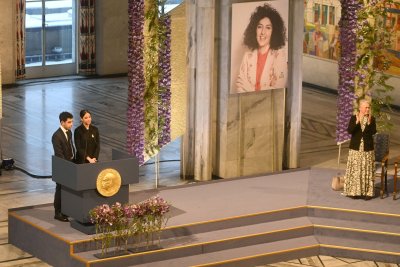Ex-President Yoon appeals life sentence over insurrection conviction

Former President Yoon Suk Yeol on Tuesday appealed his life sentence over his insurrection conviction from his failed bid to impose martial law.
The appeal was filed by his lawyers five days after a court sentenced Yoon to life in prison for leading an insurrection when he briefly imposed martial law on Dec. 3, 2024.
“We think we have a responsibility to clearly point out the problems with this decision for not only court records but for future historical records,” the lawyers said in a notice to the press.
“We will not be silent about the special counsel’s overzealous indictment and the contradictory decision of the court of first instance premised on it, as well as its political background,” they added.
The Seoul Central District Court delivered the ruling last Thursday, saying Yoon aimed to cripple the National Assembly by sending troops to the compound after declaring martial law, meeting the definition of an insurrection as stipulated by the Constitution.
It also said the former president planned the crime personally and in a leading role, incurring an enormous social cost, but hardly expressed an apology.
Seven other defendants received their first verdicts alongside Yoon, including former Defense Minister Kim Yong-hyun, former National Police Agency chief Cho Ji-ho and former Seoul Metropolitan Police Agency chief Kim Bong-sik.
The former defense minister was sentenced to 30 years in prison, while Cho was given 12 years and the former Seoul police chief 10 years for their roles in the martial law bid.
Yoon was earlier sentenced to five years in prison in a separate trial on charges that include his alleged obstruction of investigators’ attempt to detain him last year.
Copyright (c) Yonhap News Agency prohibits its content from being redistributed or reprinted without consent, and forbids the content from being learned and used by artificial intelligence systems.






